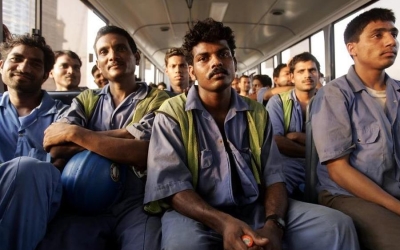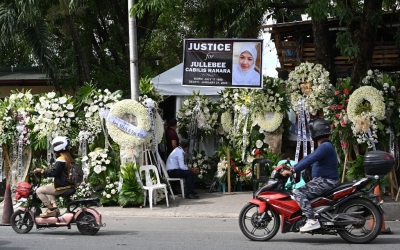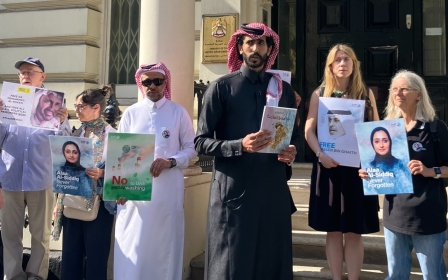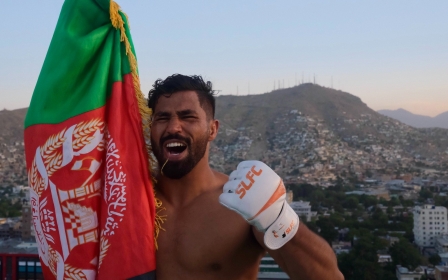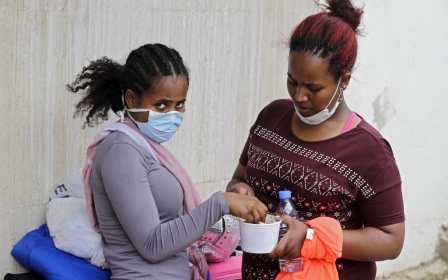Gulf states 'exposing migrant workers to fatal temperatures'
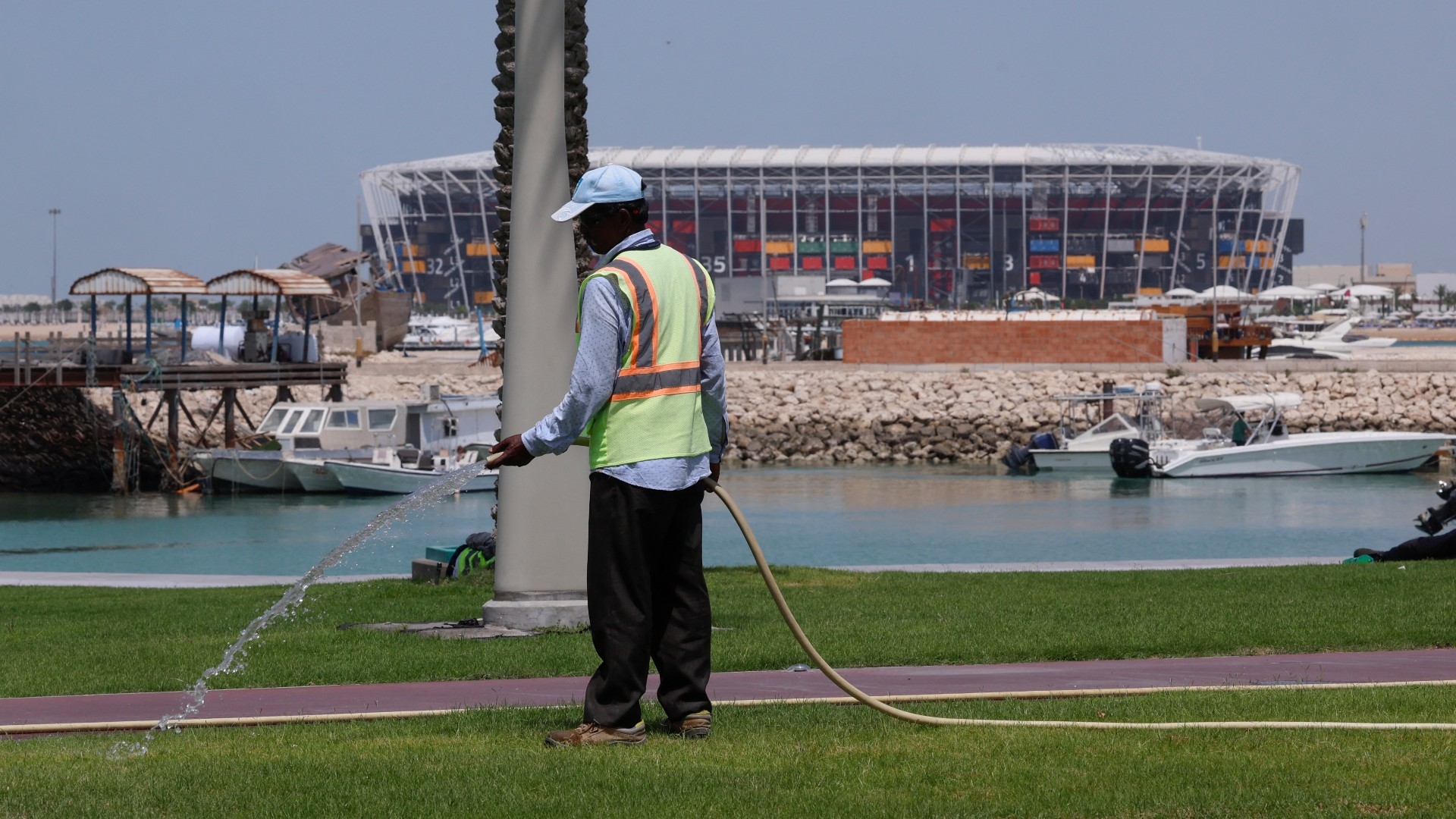
Gulf states are exposing migrant workers to extreme and potentially fatal temperatures, a new report has found.
Killer Heat, published on Tuesday by Vital Signs Partnership, a coalition of organisations researching migrant worker deaths, said foreign labourers in Bahrain, Kuwait, Oman, Qatar, Saudi Arabia and the UAE were at acute risk of heat-related illnesses and injuries.
In most of the Gulf region, there are between 100 and 150 days when the maximum daily temperature exceeds 40ºC.
That is set to increase significantly due to climate change, according to projection research cited in the report.
In the UAE, the number of days exceeding 40ºC will increase by 51 percent by 2050 if global temperatures increase 1.5 percent, and by 98 percent if global temperatures rise by 3 percent.
New MEE newsletter: Jerusalem Dispatch
Sign up to get the latest insights and analysis on Israel-Palestine, alongside Turkey Unpacked and other MEE newsletters
Such levels of heat already cause "a cascade of illnesses" according to the World Health Organisation, including heat cramps, heat exhaustion, heat stroke and hypothermia.
Ganesh, a Nepalese man who went to the UAE to work as a lifeguard in 2018, was diagnosed with kidney failure when he returned to Nepal.
“The ground was so hot I couldn’t touch it with bare feet,” he recalled, as quoted in the report. “It would burn my skin. You can’t imagine how hot it was."
He believes that working 12-hour shifts at the outdoor rooftop swimming pool and sub-standard living conditions contributed to the deterioration in his health.
Kidney disease
The report states that there is growing global concern over the development of chronic kidney disease - a fatal loss of kidney function, in those who do physically demanding work in high temperatures.
A nephrologist in the Bangladeshi capital Dhaka said that he had received several patients returning from Gulf countries with kidney problems, which he attributed to heat exposure and dehydration.
Sujan Thami, a 40-year-old from Nepal who worked in Qatar as a plumber, said that he worked in "searing heat", where 100 workers shared a single water point.
Less than a year after moving to Qatar, he experienced blurred vision and vomiting, and later found out that his kidneys were not fully functioning.
“I don’t know how much longer I will live,” Thami said. “I may die at any time.”
“Nepali workers go to the Gulf to earn money, but return with kidney disease," said Rishi Kumar Kafle, chief nephrologist at Nepal’s National Kidney Centre.
"Gulf nations are rich, they’re resourceful. They invite people from abroad to work for them. That’s okay, but they should provide safe working conditions.
"Why are these wealthy Gulf nations not doing anything for these workers?”
The UAE will host Cop28, the UN climate change conference, later this year in Dubai.
Activists have strongly criticised the decision to host the summit in the Emirates, over its climate and human rights record.
The Vital Signs Partnership includes the Center for Migrant Advocacy in the Philippines, the Law and Policy Forum for Social Justice in Nepal, Justice Project Pakistan, the Refugee and Migratory Movements Research Unit in Bangladesh, and FairSquare in the UK.
'Systemic failure'
Gulf countries have varying laws banning work at certain hours during summer months, however the report describes the measures as inadequate.
The UAE prohibits work for the least amount of time among the six states.
Qatar - which passed a string of labour laws in the run-up to the 2022 World Cup - bans work between 10 am and 3:30 pm in summer - a total of 589 hours of mandatory work stoppages a year, the longest in the region.
The NGOs called on Gulf countries to adopt a risk-based rather than calendar-based approach, and to ensure mandatory breaks in shaded areas and access to water and chilled food storage.
It also called on governments to ensure free healthcare for low-paid migrant workers irrespective of immigration status, and to fund the healthcare costs of those who return to their countries with chronic kidney disease.
"The climate change projections for the Gulf in this report are as horrifying as the personal accounts of the workers exposed to 2023 temperatures in countries like the UAE, whose COP presidency places it in a unique position of responsibility this year," said Nicholas McGeehan, co-director of FairSquare, one of the NGOs in the global partnership.
"The UAE and other Gulf states should be prepared to address the appalling impact of their systematic failure to provide basic protection to the people whose labour sustains their extremely wealthy societies."
This article is available in French on Middle East Eye French edition.
Middle East Eye delivers independent and unrivalled coverage and analysis of the Middle East, North Africa and beyond. To learn more about republishing this content and the associated fees, please fill out this form. More about MEE can be found here.


